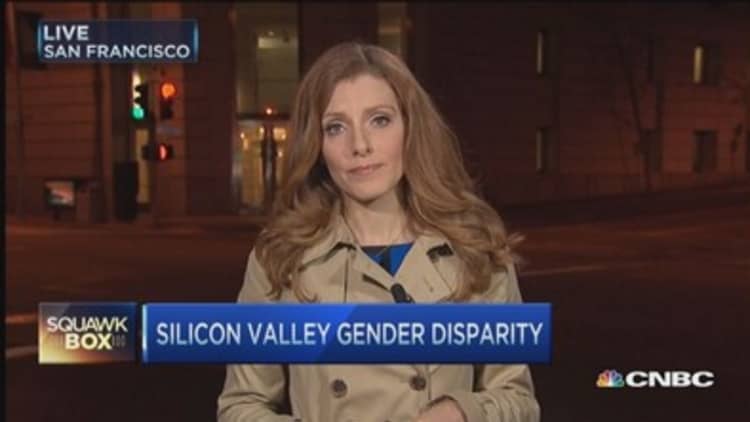
With the final arguments in Ellen Pao's gender discrimination lawsuit against venture capital firm Kleiner Perkins coming Tuesday, there's no question that gender disparity in Silicon Valley is now in the spotlight.
Industry insiders and attorneys are mixed on whether the suit will have a chilling effect on hiring women—prompted by fears that hiring women carries more risk of lawsuits—or whether it's having a positive effect by starting a long-needed dialog around gender inequality in Silicon Valley.
But no matter who wins the case, the result could be more lawsuits, some attorneys say.
"It shows that even someone at a level like she's achieved can prosecute her rights and shouldn't be afraid to come forward," said Lawrence Pearson, a partner at employment law firm Wigdor LLP. "At a minimum it will have that kind of impact. It will encourage other people to come forward and I think, also, wakes up Silicon Valley and really the rest of corporate America as well to the fact that they need to pay attention to these issues."
Read More'Mansplaining' happens to women all the time, says Kara Swisher
If Pao wins, especially if she's awarded punitive damages, it could set a precedent. "It would make prospective jurors in other cases aware that there is such a thing as punitive damages, that in fact a company can be held accountable in that way ... to the tune of many millions of dollars," Pearson said.
Pao, a former partner at the storied venture capital firm (which was an early investor in companies like Twitter, Google and Amazon), sued her former employer in 2012, saying she was the victim of gender discrimination, and was then fired after she complained. Pao is seeking $16 million, not including punitive damages. Pao is now the interim CEO of Reddit.
It's not just Kleiner Perkins under fire. Last week Twitter and Facebook were sued by former employees for alleged gender discrimination.
A former Twitter engineer, Tina Huang, filed a proposed class action lawsuit against the company, alleging it uses secretive promotion and hiring processes that favor men. Twitter responding saying: "Ms. Huang resigned voluntarily from Twitter, after our leadership tried to persuade her to stay. She was not fired. Twitter is deeply committed to a diverse and supportive workplace and we believe the facts will show Ms. Huang was treated fairly."
The law firm representing Pao, Lawless & Lawless, is also suing Facebook on behalf of a former employee, alleging that she faced discrimination, harassment and retaliation because she's a woman and of Taiwanese descent. Facebook said in response: "We work extremely hard on issues related to diversity, gender and equality, and we believe we've made progress. In this case we have substantive disagreements on the facts, and we believe the record shows the employee was treated fairly."
Facebook COO Sheryl Sandberg has been an advocate for Facebook and all of corporate America to embrace gender equality with her "Lean In" movement. And she's said that Facebook can and should do better. Last June, Facebook reported that 69 percent of its overall global work force is male. That's right in line with Google, Apple and Twitter, which all reported a 70 percent male work force last year. Yahoo reported that its work force is 62 percent male.
Read More
There are even fewer women in the executive ranks. At Facebook women comprise just 23 percent of senior ranks, but that's far better than the average. At Silicon Valley's top 150 companies women comprise just 11 percent of executives, compared with 16 percent at S&P 500 companies, according to a report by law firm Fenwick & West.
These statistics of gender inequality at top Silicon Valley companies have wide-reaching implications. These corporate giants are a key training ground for entrepreneurs as well as VC investors. So improving the balance at the biggest companies is key to drive equality across the tech and start-up ecosystem.


